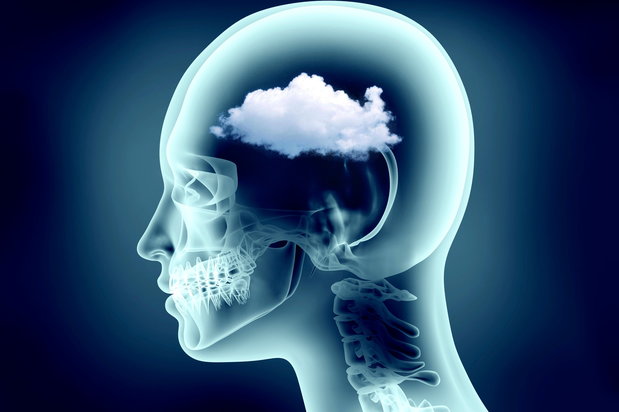One of the best things about getting sober is that there's a newfound clarity of thought. Irrational thoughts that lead to impulsive behavior are replaced by more reasonable ones. This initial phase of sobriety can be invigorating and is often referred to as the "pink cloud"—a period that feels a little like you've found a unicorn.
Then, as the novelty of lucidity begins to wear off, you may realize that you're having trouble concentrating, familiar words are escaping you, and you can't remember why you just walked from one room to another.
Goodbye, pink cloud. Hello, brain fog.
Brain Fog
Brain fog is one of the many consequences caused by excessive alcohol and substance abuse. Following addiction, this common symptom generally co-occurs with several other symptoms in the stage of recovery after acute withdrawal, known as Post Acute Withdrawal Syndrome (PAWS).
However, facing brain fog at this particular time in history has an advantage—a current wellness movement known as biohacking, which refers to engaging in practices and activities that assist your mind and body to function better. In addition, ongoing research is abundant in the area of neuroplasticity—the amazing ability of the brain to rewire following injury or disease—and its relationship to addiction recovery.
The fortunate takeaway for recovering addicts is that there are simple ways to feed and train your brain in order to regain mental clarity that is equal or close to where it was before addiction.
Here are 5 simple and practical ways to get your brain back on track during recovery.
1. Go Nuts
Research shows that regularly eating nuts can alleviate brain fog. Specifically, one study revealed that English walnuts "reduce the oxidant and inflammatory load on brain cells" and improve the transmission of neural messages in the brain, as well as aid in the removal of toxic proteins.
However, you don't have to rely solely on nuts for your brain food. For example, blueberries may help prevent neurodegeneration, and avocados are rich in monounsaturated fats that protect brain cells. Also, avoid going too long between meals. A consistent flow of nutrients will keep your brain sharp throughout the day.
2. Mix Things Up
Numbing, unproductive habits are characteristic of addiction. Sobriety brings the gift of learning new ways to effectively spend your time. Engaging in new activities is a great way to give your brain a workout. In particular, learning a new language or how to play an instrument is the equivalent of rigorous cardiovascular exercise for your brain.
However, even switching up the way you go about familiar daily tasks will challenge your brain and help pull you out of autopilot. For instance, try brushing your teeth with the opposite hand for a week, read a book that's not your go-to genre, or take a different route to work. Think of it as retraining a muscle group for a specific type of physical exercise.
3. Nurture Creativity
Sometimes, brain fog is less related to slow brain function and due more to overactive brain activity, such as over-analyzing a simple situation or obsessing about a problem. One way to let go of nit-picking or ruminating thoughts is to channel your energy into a creative activity, like drawing, needlepoint or cooking.
Creative activities will not only take your mind off of unproductive thoughts but also provide an overall sense of serenity. You will be immersed in a state of tranquility, as long as you don't judge yourself during the process. Create for the sole purpose of creating and leave any desire for perfection behind.
4. Prioritize Shut-Eye
A recently released study by the RAND research group revealed the many ways that sleep deprivation negatively affects brain function. Consistently running on lack of sleep decreases the brain's ability to solidify memory and clear out toxins, as well as lowers your ability for higher cognitive functions, such as basic multitasking.
Therefore, it's important to make getting quality sleep a priority to avoid more brain drain. Make sure that your bedroom is maximized for restful sleep by designating it for sleep and intimacy only. That means no computers or TV's since they emit blue light, a known suppressor of melatonin production. Also, sleeping with an essential oil diffuser provides soothing aromas and low, rhythmic noise to help lull you to sleep.
Cut yourself off from caffeine by six hours before bedtime, and drink plenty of water and other hydrating beverages. Set aside 30 minutes before retiring to engage in a wind-down routine, such as taking a warm bath or meditating. If possible, be consistent with the time you go to bed and what time you get up in the morning. This will cause your brain to automatically begin to wind down near bedtime.
5. Train Your Brain
Although debate exists as to the validity of claims by brain game creators that playing their games a certain amount of time each day will improve brain function, some brain training apps are co-created by neuroscientists. Any brain that's been the victim of extended substance abuse certainly couldn't be harmed by a memory or concentration exercise.
There are several popular apps for a brain workout, including Fit Brain, which features exercises that target emotional intelligence and self-awareness.
Life After Addiction
Experiencing brain fog following addiction can be a frustrating experience, but hang in there. The smoke will clear in due time and your noggin will be back in shape before you know it, especially with the help of these brain-boosting practices. And, while you're at it, treat yourself to some dark chocolate.
|
If you or someone you know is seeking help from addiction, please visit our directory of treatment centers or call 800-891-8171 to speak to a treatment specialist. |








